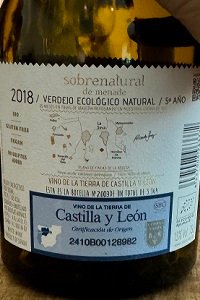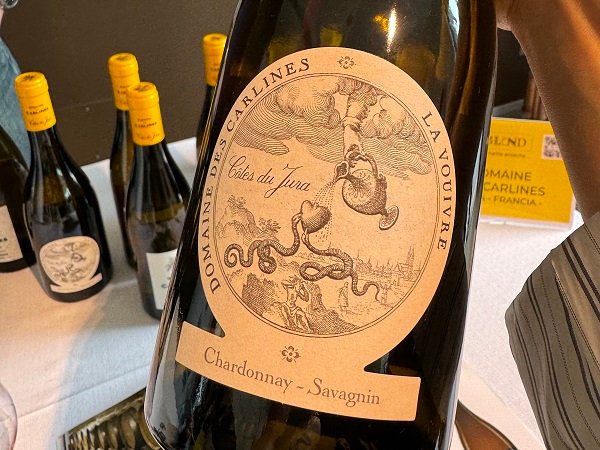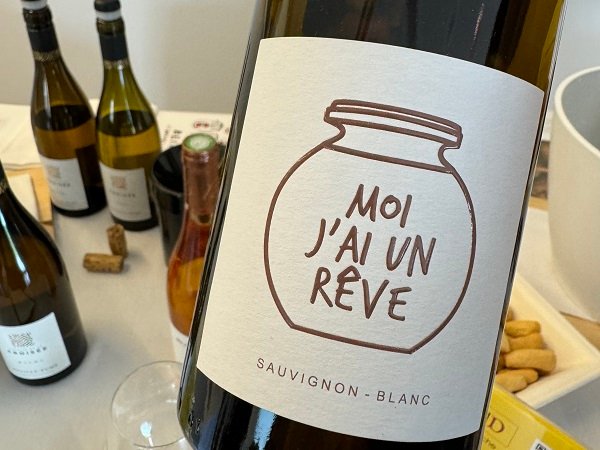Thanks to the Blend 2024 event, we were able to taste a very special wine: the Castilla y León Sobrenatural 2018 Bodegas Menade.
The 2024 edition of Blend, the enocultural review conceived and implemented by Bellenda. “Event, reserved for producers, professionals and opinion leaders, that brings together the different souls of the Italian and international wine world with the aim of stimulating ideas, debates and new points of view.” This is what the fruit of the work of Umberto Cosmo, the soul of Bellenda but also of its distribution, which he personally and carefully selects around the world.
Blend 2024
On the occasion of the 2024 edition, there was certainly no shortage of stimuli. I still remember very well the taste of the wines of theAlpago (Belluno) of Marco Levis with that memorably flavored late harvest Pinot Grigio. Just as exciting is the account of the wines of Domaine des Carlines Côtes du Jura And that Savagnin who really had something to say. I remember well the elegant power of Alsace Riesling from Domaine Charles Baur In the Eichberg Grand Cru. Or the crazy wines of Château Beynal, with particular astonishment for the Bordeaux Blanc Moi j’Ai un Rêve from Sauvignon blanc. And I could go on and on and on … but the story I decided to tell is one and that is that of Bodegas Menade and its frank foot vines, the difference between Verdejo and Verdeja, flor, spontaneous vinifications, and the supernatural powers of their wines. One thing at a time.
Bodegas Menade
We are in La Rueda, in the heart of Castilla y León, a place located in central Spain north of Madrid and south of the Duero River (yes, what they call the Douro in Portugal). This area is considered the home of Verdejo, a very versatile white grape variety that as a wine also conceals an aptitude for longevity. Secondary quality that only a few have dared to essay, but again, let’s go in order.
This grape variety shows early maturity, yet it has adapted well to this area. Torrid in summer and with characteristic stony soils. Only a cultivation system such as the sapling could work by helping the plant protect the clusters from excessive sun as well as conserving the little water available under the canopy. In fact, it must be said, the climate also suffers from oceanic influence and cannot be called Mediterranean, but rather continental.
We come to the cellar. Founded in 2005 by the Sanz brothers, sons of art as the sons of one of the pioneers of the appellation, winemaker Antonio Sanz. Richard Sanz now signs Menade’s production with a clear idea both in the making of the wines and, of course, in the management of the vineyard.
Unique and rare vineyards
We are talking about the beauty of 250 hectares of vineyards all certified organic with vineyard management where definitely nothing is left to chance. A fleet of drones monitors the phytosanitary status of plants as well as their overall health allowing for targeted and never wasted actions. Ozone is the inert gas that has been adopted as a natural sterilizer, grape harvesting is strictly conducted at night by taking advantage of cooler temperatures and ensuring acceptable working conditions for employees.
These are just some of the actions that characterize the Sanz brothers’ approach. Dwelling on Verdejo is a must because in Maenad things get really interesting. The brothers’ first 7 hectares in fact were all in Verdejo and all 7 in frank foot, one clone in particular considered “the mother” of all Verdejo clones. Locally it takes the name Verdeja, and siblings also continue to differentiate it. Material is routinely taken from the Verdeja in order to graft it onto the field in an effort to preserve and propagate its uniqueness.
Wines
In this context, more unique than rare (until recently considered the winery with the largest number of hectares certified organic at the European level), the time has come to talk about wines.
Spontaneous vinification, as well as malolactic fermentation when planned. Low if not nonexistent (due to some winemaking choices) use of added sulfites. In the production of wines, collaborations with the yeasts flor, as if everything in this company has a role and a purpose and nothing, really nothing, is wasted. Thus is born a wine that is super-natural, at times actually comes to mind as supernatural. Enough to convince a skeptic like me. From Verdeja grapes (which you now know are free-range ancient clone), from the oxidative style and without added sulfites.
Sobrenatural

Imagine harvesting grapes and obtaining must from them. Of harnessing oxygen as a valuable ally to decay all the aromas one after another. That oxidized must you will ferment it thanks to the indigenous yeasts Of the cellar. They will know what to do; you do not disturb them in steel. At that point you will realize that having oxidized the wort is not enough for you, you will want to bring down the total acidity as well. And then, always in steel you will also have the malolactic, spontaneous what am I telling you. This wine you get you will have put him through his paces, winemaker’s word, but he still has something to give.
Indeed, the time comes to rebuild it. You will put it in drained barrique and thanks to the natural conditions of your cellar there will form a veil of flor. These new yeasts will take over protecting the wine from oxygen (bizarre to do so in the ultimate oxygenating container!) and producing new aromas. This process will be slow and steady. You will have stripped him of everything and now you are giving him back something new, unique and special… tell me, if this is not Supernatural! [/vc_column_text][/vc_column][/vc_row]











